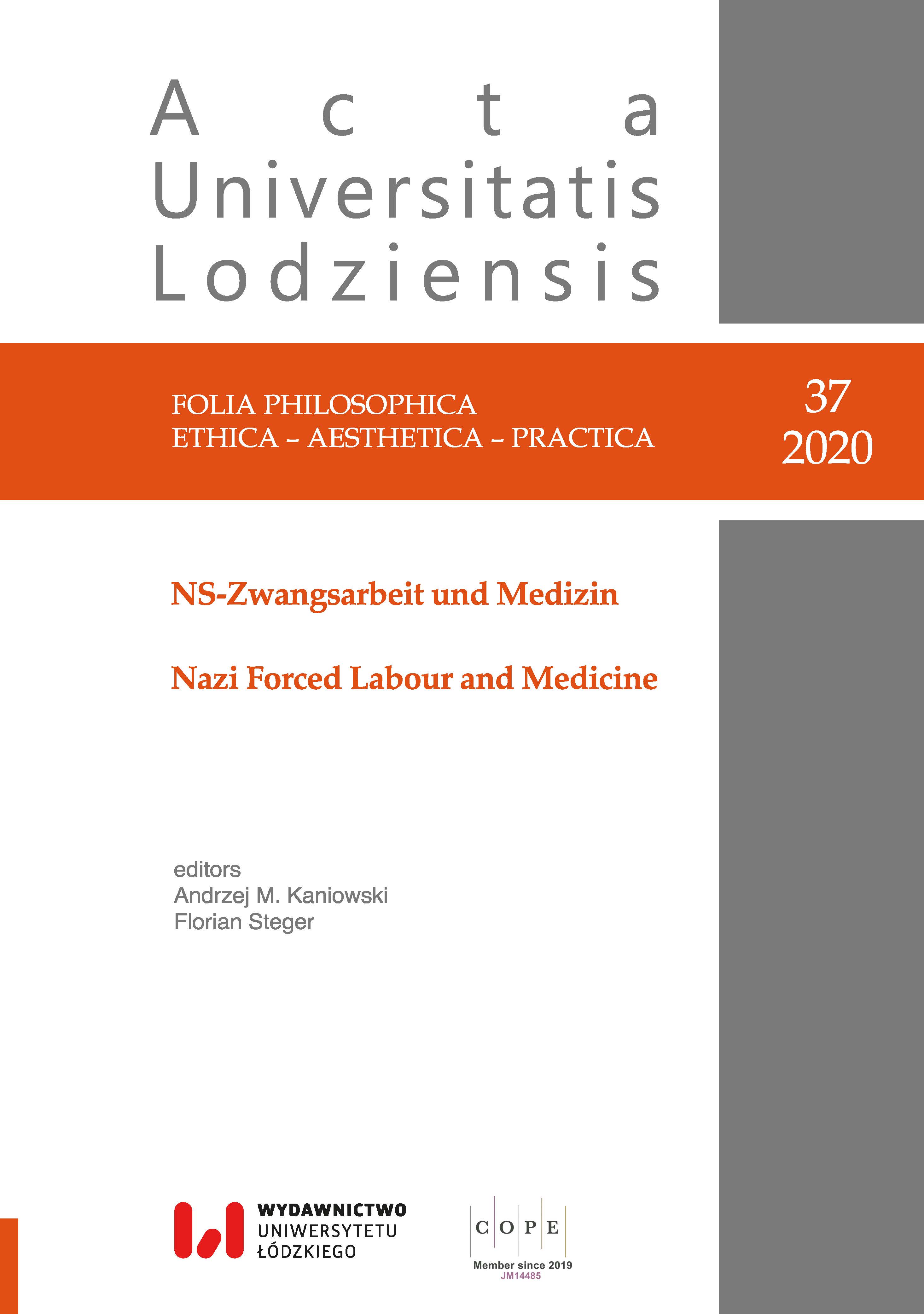Medizinische Versorgung polnischer Zwangsarbeiter in der Region Bielefeld
Medical Care for Polish Forced Laborers in the Bielefeld Region
Author(s): Wojciech KwiecińskiSubject(s): Politics, Health and medicine and law, Fascism, Nazism and WW II
Published by: Wydawnictwo Uniwersytetu Łódzkiego
Keywords: national socialism; Nazism; forced-labor; Polish forced-laborers; medical care
Summary/Abstract: Polish and Soviet forced laborers labelled in the Nazi ideology as “Untermenschen” were the worst treated nationalities among those employed by the Third Reich and its war machine. The treatment of Poles and Russians was entirely subordinated to the racial ideology with its profound impact on the law and social and economic conditions. This ideology ordered, on the one hand, the precise separation of Polish and Soviet forced laborers from German citizens, and on the other, the optimal organization of the forced labor which meant its entire subordination to the German state and its industry. The result of such an organization was an entirely repressive, even beastly system, with miserable living conditions and most inferior medical care. Both living conditions and medical treatment show, as in a lens, the main objectives of the Nazi state and its dehumanized character. Bielefeld Stadt und Land, located in north-east Westphalia, due to its mixed industrial (mostly arms industry) and agricultural character, constitutes a representative example of the brutal and repressive system of the forced labor industry reflecting the entire spectrum of problems related to it. The analysis of medical care in the Bielefeld area illustrates the differences between the two groups of Polish forced laborers. The first consists of people in the industry sector, while the second is a mixed category including workers employed in agriculture, the service sector and domestic help. As far as the first group is concerned, the status of the workers was to some extent standardized. Most of them were accommodated in the camps and subjected to brutal and systematic exploitation, which was calculated to maximize production effects, and at the same time, to destroy individuals through the adverse conditions of accommodation and minimal medical care. This inhumane treatment was a result of racist ideology. Status, employment conditions and medical care in the second group were much more diverse. We are dealing here with the entire spectrum, often of extremely different experiences of forced laborers with medical personnel and the diverse attitudes of the employers. The fundamental problem of the limited research materials on the discussed issues are deficiencies of the source base. In particular this concerns the limited recollections of the forced laborers themselves. Currently, it is virtually impossible to increase the source dossier, as witnesses of these events are mostly no longer available.
Journal: Acta Universitatis Lodziensis. Folia Philosophica. Ethica - Aesthetica - Practica
- Issue Year: 2020
- Issue No: 37
- Page Range: 67-86
- Page Count: 20
- Language: German

